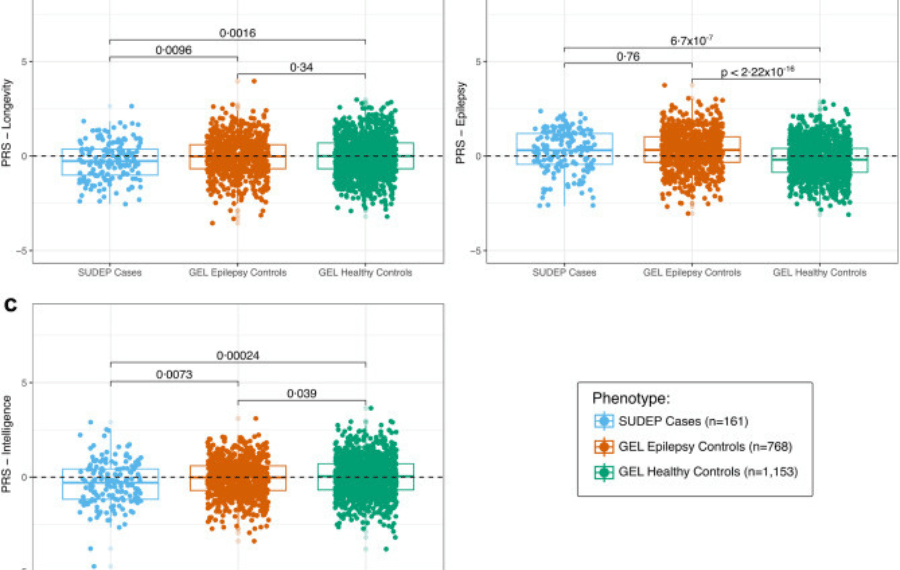Promising preventative strategy for SUDEP
Atenolol rescues premature mortality in genetic mouse models of sudden unexpected death in epilepsy (SUDEP)
A study from CURE Epilepsy grantee Dr. Christopher Reid, investigates the genetic underpinnings of Sudden Unexpected Death in Epilepsy (SUDEP) and explores a promising preventative strategy. The researchers focused on mutations in cardiac ion channels—known to cause abnormal heart rhythms—which are found in some individuals with SUDEP and may contribute to an elevated risk of SUDEP.
To test this hypothesis, they developed novel mouse models by combining epilepsy-related genetic mutations with a mutation in a heart ion channel that disrupts normal cardiac rhythm. These mice were significantly more likely to die from seizures compared to those with functional heart channels, providing compelling evidence that cardiac-related genetic factors can increase SUDEP risk.
The team also evaluated the effect of atenolol, a widely used heart-protective medication, in these SUDEP-prone mice. Remarkably, atenolol extended survival without reducing seizure frequency, suggesting that seizure-induced cardiac dysfunction may play a critical role in SUDEP—and that targeting the heart could be a viable protective strategy.
The findings pave the way for future approaches such as genetic screening and targeted therapies to help safeguard individuals with epilepsy who are at heightened risk of SUDEP.








